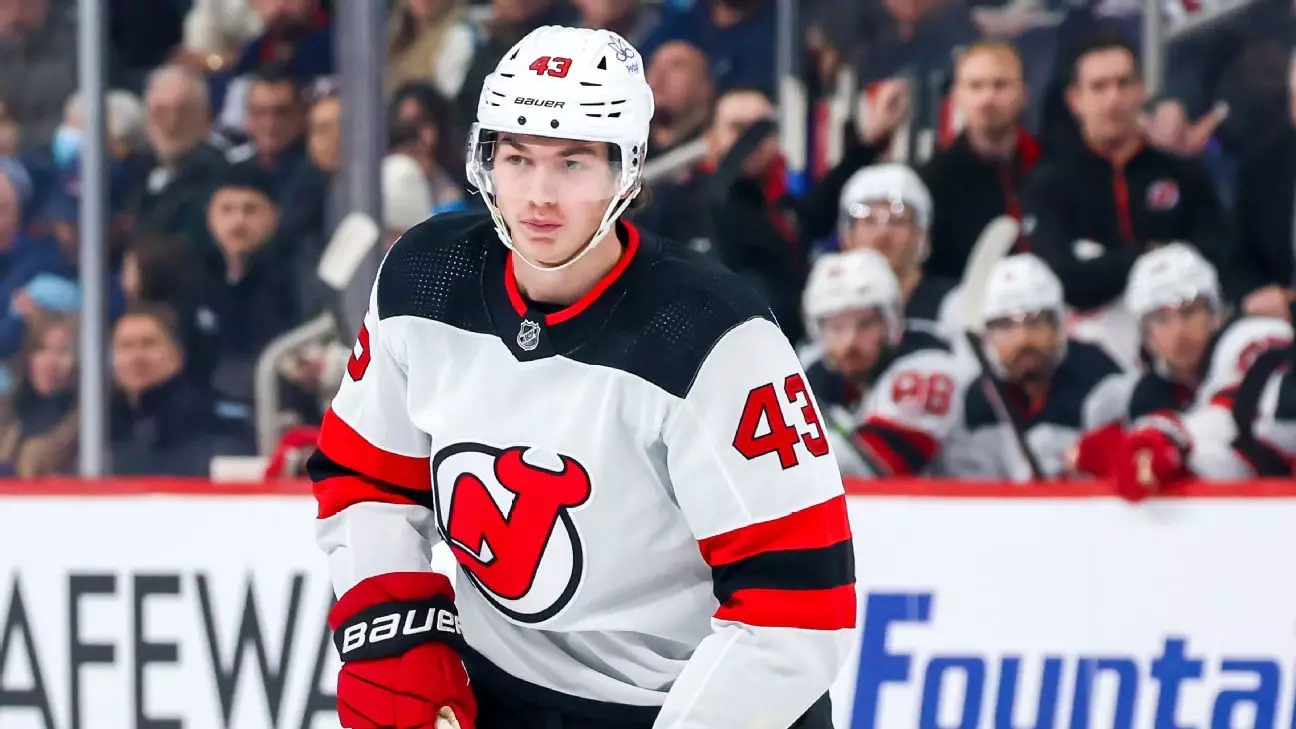The New Jersey Devils recently announced that their promising defenseman, Luke Hughes, has suffered a left shoulder injury, sidelining him for a critical period ranging between six to eight weeks. This injury is particularly disheartening as it occurred during offseason training, a time when players typically optimize their fitness and prepare for the upcoming NHL season. Fortunately, evaluations from the Devils’ medical staff determined that Hughes would not require surgery. However, the consequence of this injury is significant, as Hughes will miss all seven of the team’s preseason games and the opening matches on October 4th and 5th against the Buffalo Sabres in Prague, Czechia.
Missing these crucial games not only impacts Hughes but also reignites discussions surrounding the Devils’ roster depth and their overall strategy heading into the season. With the earliest anticipated return being around the week of October 20th, Hughes is poised to miss critical early-season battles that could shape the Devils’ path towards playoff contention.
Hughes’ absence is particularly felt given his remarkable performance in his rookie season. He ended the 2022-2023 season with six goals and a notable 47 points, establishing himself as one of the NHL’s most exciting young talents. Over the course of the season, he played in all 82 games, a feat that not many rookies can achieve. His impressive statistics garnered him a third-place finish in the Calder Trophy voting, which is awarded to the league’s best rookie, falling just behind Connor Bedard and Brock Faber.
In a league where consistency is key, Hughes’ ability to maintain a full season of play while contributing significantly to the team’s offense has proven his potential as a long-term asset for the franchise. His talents make him an irreplaceable element in the Devils’ defensive lineup, and his return will be highly anticipated once he is medically cleared.
The timing of Hughes’ injury raises questions about the Devils’ ability to maintain momentum as they aim for the playoffs. The team had finally broken a four-year playoff drought last season, marked by a substantial 52-win achievement, and they enjoyed a victorious first-round playoff run against the New York Rangers. However, they faltered in the second round against the Carolina Hurricanes, leading to several roster and coaching changes designed to enhance competitiveness.
With Hughes sidelined, the Devils must now depend on other defensemen to step up and fill the void he leaves, which can disrupt the overall chemistry of the team. This scenario places added pressure on the remaining players and the coaching staff, who need to adjust their strategies to accommodate Hughes’ absence while still aiming for a strong start to the season.
For the Devils, the long-term picture must remain a priority. Once Hughes returns to action, he is expected to play a vital role in the overall success of the team. A defenseman of his caliber can significantly enhance both the offensive and defensive play, providing crucial contributions on the ice and in the locker room. The Devils’ management and coaching staff need to meticulously plan for his recovery and reintegration into the lineup to maximize his impact upon return.
Moreover, Hughes’ development underscores the importance of nurturing young talent within the organization. And with family connections to NHL excellence—his brother, Quinn Hughes, is already making waves as the captain of the Vancouver Canucks—the Devils are not just banking on immediate returns but also focusing on building a sustainable future for their franchise.
Luke Hughes’ shoulder injury presents a significant setback for the New Jersey Devils as they aim to solidify their presence in the NHL. While the team awaits his return, the focus must shift to cultivating other players’ potential and ensuring that the strategy remains intact for the challenges ahead. The return of Hughes is not just anticipated; it is essential for the Devils’ aspirations in the forthcoming season.


Leave a Reply